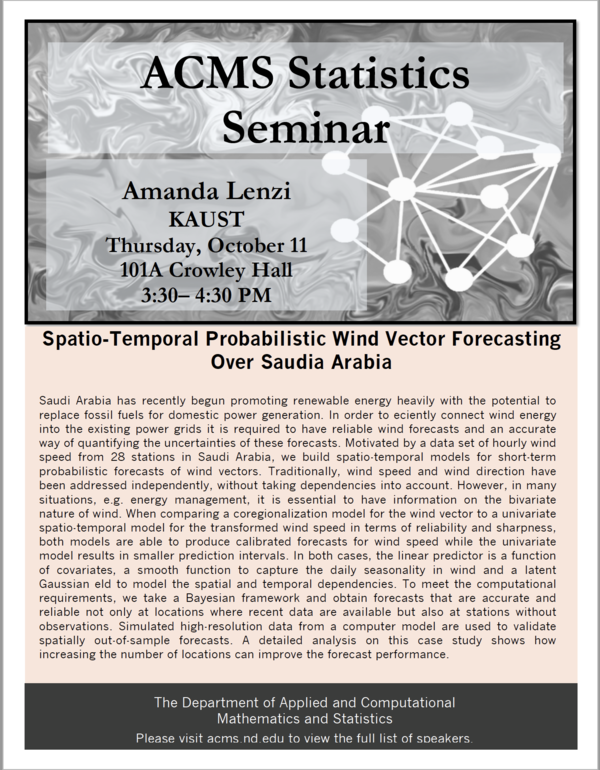Amanda Lenzi
KAUST
3:30 PM
101A Crowley Hall
Spatio-Temporal Probabilistic Wind vector Forecasting Over Saudia Arabia
Saudi Arabia has recently begun promoting renewable energy heavily with the potential to replace fossil fuels for domestic power generation. In order to eciently connect wind energy into the existing power grids it is required to have reliable wind forecasts and an accurate way of quantifying the uncertainties of these forecasts. Motivated by a data set of hourly wind speed from 28 stations in Saudi Arabia, we build spatio-temporal models for short-term probabilistic forecasts of wind vectors. Traditionally, wind speed and wind direction have been addressed independently, without taking dependencies into account. However, in many situations, e.g. energy management, it is essential to have information on the bivariate nature of wind. When comparing a coregionalization model for the wind vector to a univariate spatio-temporal model for the transformed wind speed in terms of reliability and sharpness, both models are able to produce calibrated forecasts for wind speed while the univariate model results in smaller prediction intervals. In both cases, the linear predictor is a function of covariates, a smooth function to capture the daily seasonality in wind and a latent Gaussian eld to model the spatial and temporal dependencies. To meet the computational requirements, we take a Bayesian framework and obtain forecasts that are accurate and reliable not only at locations where recent data are available but also at stations without observations. Simulated high-resolution data from a computer model are used to validate spatially out-of-sample forecasts. A detailed analysis on this case study shows how increasing the number of locations can improve the forecast performance.
Full List of Statistics Seminar Speakers
